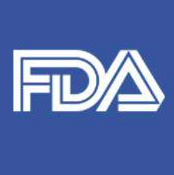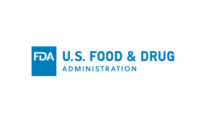Audits Criticize FDA on Food Recalls

A series of new audits claim that the U.S. Food and Drug Administration (FDA) is not using its relatively recently expanded authority to conduct more food safety inspections, which in turn affects how food recalls are announced to the public.
Three audits were conducted by the Office of the Inspector General (OIG), which is nestled within the Department of Health and Human Services and the Government Accountability Office. The audits criticize how the FDA enforces food safety laws, despite being given more authority--and funding--via the Food Safety Modernization Act. According to the audits, the same food safety violations that occurred pre-FSMA are still taking place 7 years after the act was signed into law by President Barack Obama on January 4, 2011.
According to OIG, “Our objective was to determine whether FDA had an efficient and effective food-recall process that ensured the safety of the Nation's food supply. Specifically, we focused on FDA's oversight of firms' initiation of food recalls, monitoring of firm-initiated recalls, and maintenance of food recall data in the electronic recall data system."
In “FDA’s Food-Recall Process Did Not Always Ensure the Safety of the Nation’s Food Supply” report, OIG’s audit consisted of 30 voluntary food recalls that were chosen from more than 1,500 recalls reported to the FDA between October 1, 2012 and May 4, 2015.
OIG’s audits have uncovered the following:
FDA did not always have an efficient and effective food-recall process that ensured the safety of the Nation's food supply. We identified deficiencies in FDA's oversight of recall initiation, monitoring of recalls, and the recall information captured and maintained in FDA's electronic recall data system, the Recall Enterprise System (RES). Specifically, we found that FDA could not always ensure that firms initiated recalls promptly and that FDA did not always
- Evaluate health hazards in a timely manner
- Issue audit check assignments at the appropriate level
- Complete audit checks in accordance with its procedures
- Collect timely and complete status reports from firms that have issued recalls
- Track key recall data in the RES
- Maintain accurate recall data in the RES
Part of the problem reportedly lies in FSMA’s integrated food safety system, a plan that, ideally, uses state food inspectors in addition to FDA inspectors. However, state food safety officials are not following through with required inspections because their staff has not been properly trained--an obstacle that the FDA itself has noted previously.
OIG’s recommendation is that the FDA use its Strategic Coordinated Oversight of Recall Execution (SCORE) initiative to establish set timeframes, expedite decision-making and move recall cases forward, and improve electronic recall data. Other recommendations are also cited in the report.
Sign up for Food Safety Magazine’s bi-weekly emails!
Subscribe to our podcast: Food Safety Matters!
Looking for a reprint of this article?
From high-res PDFs to custom plaques, order your copy today!





